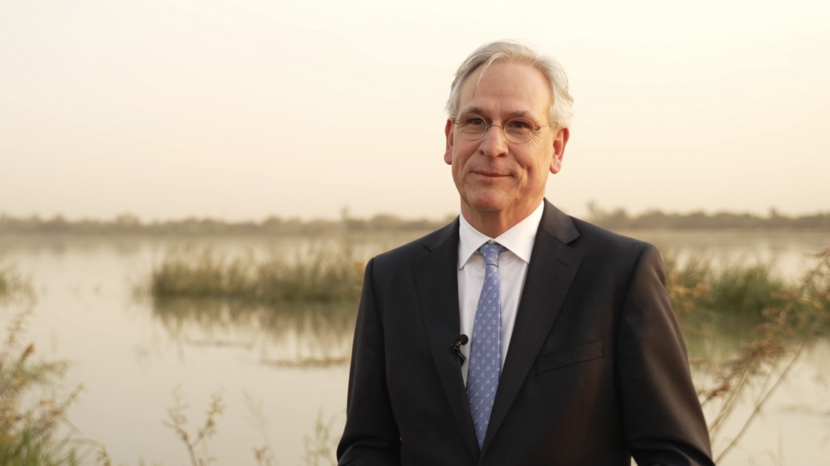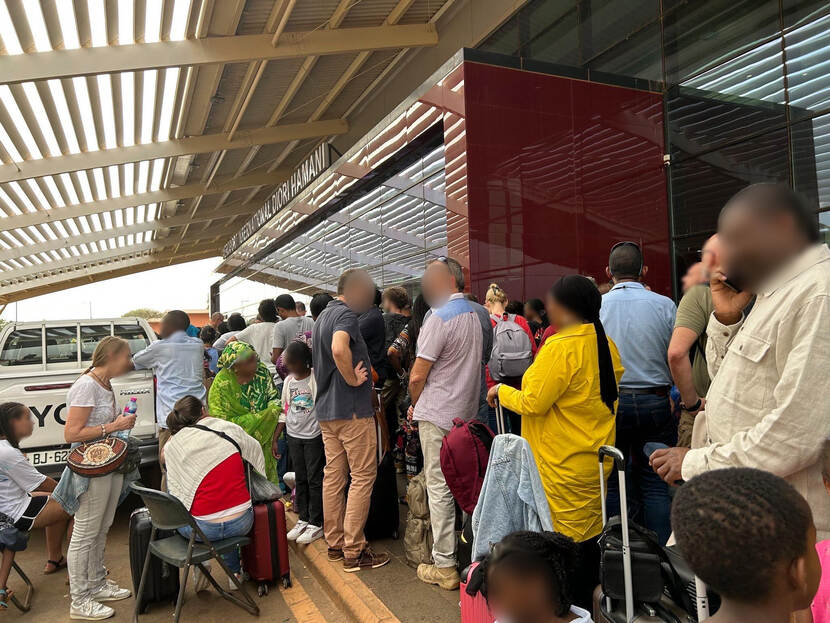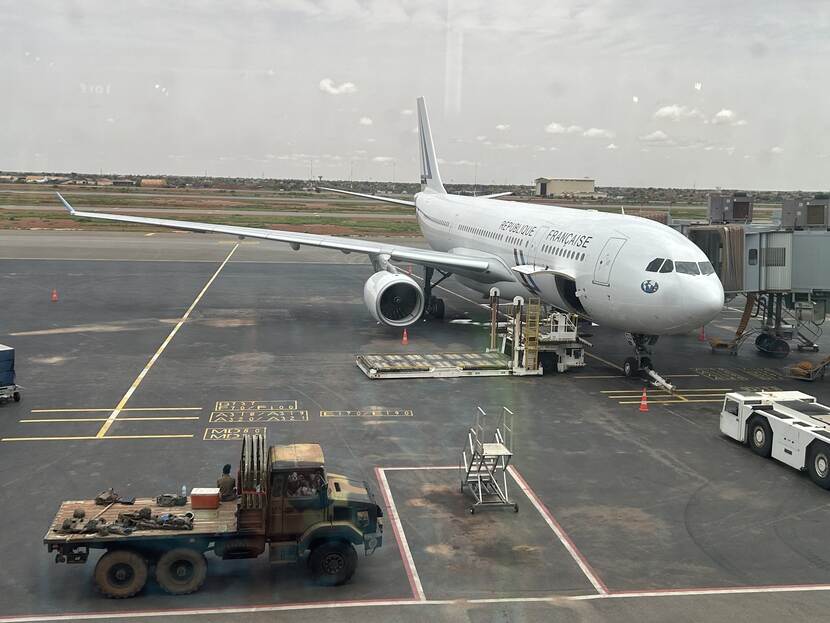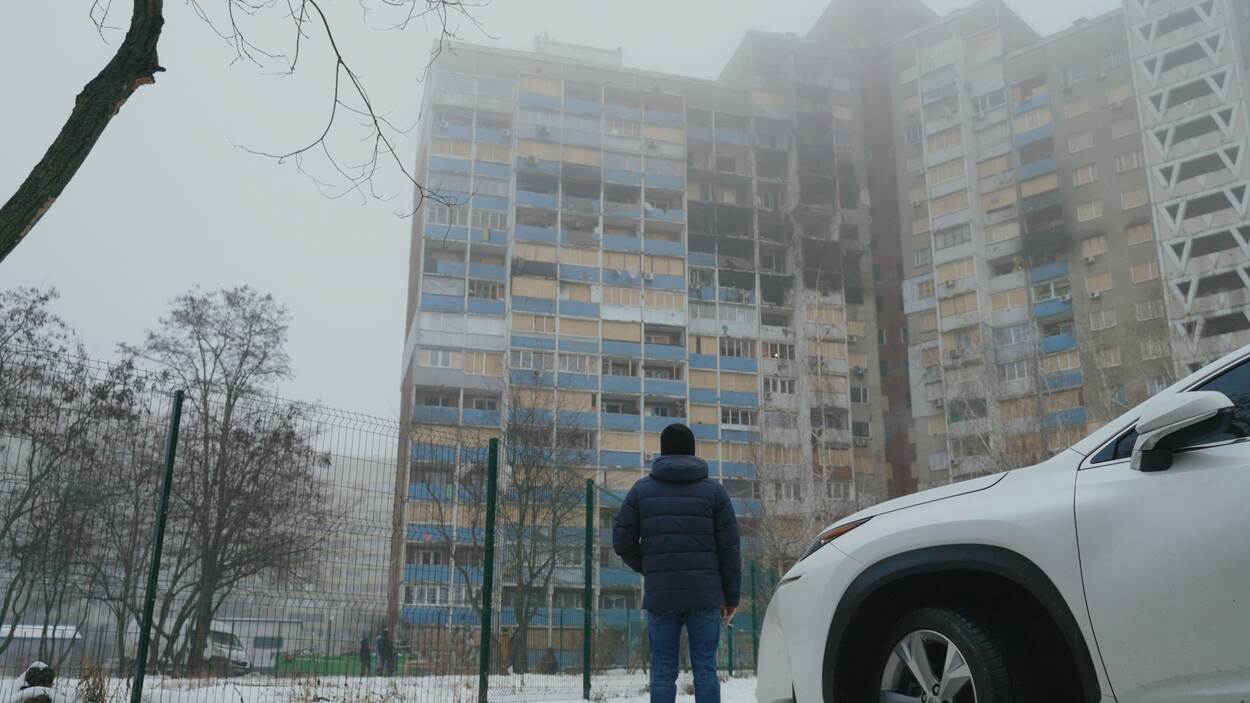Niger evacuation: interview with Ambassador Paul Tholen in Niamey
The Ministry of Foreign Affairs ensured that Dutch nationals could leave Niger on French evacuation flights after a coup occurred in the country on 26 July.
Dutch ambassador Paul Tholen is staying in Niger in order to monitor the political and security situation on the ground and help Dutch nationals who were unwilling or unable to leave. His staying also ensures diplomatic channels for dialogue with Niger are kept open.
Enlarge image
The Dutch embassy in Niger is closed to the public. The ambassador is currently working from another, safe location in the capital Niamey. In this interview, Paul looks back at the past week. ‘The work days were long and the nights short. But I’m very pleased that the Dutch nationals who wanted to leave were able to do so.’
But how was the situation in Niger, and how did the evacuation of Dutch nationals take place?
Situation following the coup in Niger
‘Strangely enough, the streets of Niamey were very quiet on the day of the coup,’ says Paul. ‘That was odd. Only the day before, when the demonstrations began, the mood had changed and things had got more serious. But what you see on the photos is not representative of the whole city. In large parts of Niamey it was still peaceful. However, the embassy and the ministry had already started to contact Dutch and international partners and stay in touch with them.’
Our highest priority: knowing which Dutch nationals were in the country, where they were and whether they were safe
The start of the crisis
‘Our highest priority was knowing which Dutch nationals were in the country, where they were and whether they were safe.’ The same applied to embassy staff. ‘Our embassy team was constantly in contact with one another. Everyone was at home in Niamey and, luckily, everyone was safe.’
The embassy is following the situation closely. ‘Although no two crises are the same, we are prepared for situations like this,’ Paul explains. ‘That’s one of our tasks as an embassy. If we need to evacuate people, we always look for the best and safest options. And here in Niger it was clear that the French would play an important role in that regard.’
One of our tasks as an embassy is to be prepared for situations like this.
Contact with Dutch nationals in Niger
‘We contacted Dutch nationals in two ways to inform them about a potential evacuation. In the first instance, the embassy had direct contact with Dutch nationals in Niger. We knew a lot of them already and we used to regularly call them to ask where they were and how things were going. They also called us if they had questions or concerns. In addition, the Ministry of Foreign Affairs Contact Centre in The Hague was working around the clock to reach people. The aim was to find out who wanted to leave and then advise them on how to leave safely.’
Evacuation of Dutch nationals
The Ministry of Foreign Affairs ensured that 19 Dutch nationals could leave Niger on French flights. ‘The mood during the evacuation was good. The situation at the airport was calm and French officials were handing out water. Our Dutch operational manager stayed there until everyone was on the plane.’ But some patience was required, says Paul. ‘The Dutch nationals needed to be at the airport by 6 am to wait for a plane. Some were only able to leave in the evening, making for a few long days for everyone – both the evacuees and the embassy staff.’
Things never go as expected during an evacuation.
‘Things never go as expected during an evacuation and there are always a lot of uncertainties. But if you can deal with that and work closely with colleagues and international partners, you always get there. We’re very grateful to our French counterparts, but also to the European Union delegation. Both played a crucial role in planning the evacuation and sharing knowledge to make sure it was a success. It was a great example of European cooperation!’
Ambassador will stay in Niger
The Dutch embassy is closed to the public until further notice. However, the Netherlands will continue to be represented in Niger, led by the ambassador. There are two reasons why we are staying, Paul notes. ‘For one, it’s to make sure someone is there for Dutch nationals who remain in the county. Several have said they are unable to leave, or don’t want to. We’ll stay in close contact with these people and keep them updated. At the same time, we want to follow the political developments in Niger closely. What is happening in the country, and in the region? And how is the security situation developing? That’s also important for the Netherlands. And something else that’s important: we want to keep channels for diplomatic dialogue open and remain in contact with civic society organisations, influential parties and partners on the ground.’
Looking ahead
Niger is one of the poorest countries in the world. What’s happening in Niger now will have a significant impact on its people. Hopefully it won’t further worsen their plight. The situation for Dutch nationals who remain in the country is unpredictable. For them, Paul has the following message: ‘We hope that every Dutch national in Niger has signed up to the BZ Information Service. Or, if they haven’t done so already, that they will do so now. That’s really important. Know that the embassy is following the situation closely, but that you should do this yourselves too. We will keep you informed of any major developments.’
Originally published at https://www.government.nl/latest/news/2023/08/04/niger-evacuation-interview-with-ambassador-paul-tholen-in-niamey






